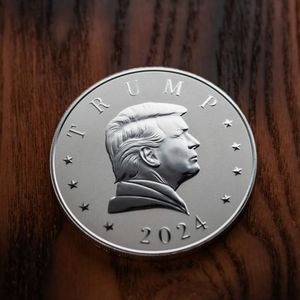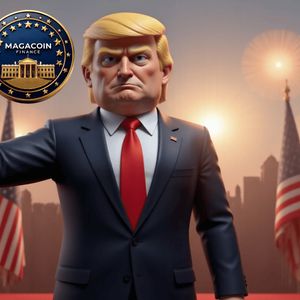In a surprising turn of events that has sent ripples through Washington D.C., reports are surfacing that former U.S. President Donald Trump is contemplating a significant shake-up in congressional ethics: a potential stock trading ban for Congress members. This news, initially highlighted by Watcher Guru on X, ignites a crucial debate on financial transparency and accountability within the highest echelons of American politics. But what does this really mean, and why is it making headlines now? Let’s dive deep into this explosive development and uncover the potential implications. Congress Stock Trading Ban: What’s the Buzz? The core of this story revolves around the idea of preventing members of Congress from engaging in stock trading while in office. Currently, while there are regulations like the Stop Trading on Congressional Knowledge (STOCK) Act, which aimed to prevent insider trading by lawmakers, concerns persist about potential conflicts of interest. Critics argue that members of Congress, privy to non-public information through their legislative roles, could unfairly profit from trading stocks in industries they regulate or oversee. This is where the idea of a complete stock trading ban for Congress gains traction. The recent report suggests that Trump is actively considering such a ban, adding fuel to an already simmering debate. This move, if implemented, could represent a landmark shift in how Washington operates and how the public perceives the integrity of its elected officials. But why now, and what are the driving forces behind this potential policy change? Trump’s Stance on Financial Transparency and Congress Donald Trump’s consideration of a stock trading ban for Congress might seem unexpected to some, but it aligns with a broader theme of challenging the status quo and advocating for what he perceives as fairer systems. Throughout his political career, Trump has often positioned himself as an outsider, critical of the Washington establishment. Taking a stand against congressional stock trading could be seen as an extension of this stance, tapping into public frustration with perceived corruption and self-serving behavior in politics. While details of Trump’s specific proposal are still emerging, the very fact that this is being considered at a high level signals a potential shift in the political landscape. It suggests a growing recognition that the current ethical framework surrounding congressional finances might be insufficient to maintain public trust. Is this a genuine push for reform, or a strategic political maneuver? The answer likely lies in a complex mix of both. Benefits of a Stock Trading Ban: Why Is It Needed? A stock trading ban for Congress is not just about preventing potential insider trading; it’s about fostering a more ethical and trustworthy government. Here are some key benefits that proponents of such a ban often highlight: Reducing Conflicts of Interest: Lawmakers make decisions that can significantly impact various industries. Banning stock trading minimizes the temptation to prioritize personal financial gain over public interest. Enhancing Public Trust: When constituents believe their representatives are acting solely in their best interests, public trust in government institutions strengthens. A ban can be a powerful symbol of this commitment. Leveling the Playing Field: Access to privileged information should not translate into an unfair advantage in the stock market. A ban aims to ensure that everyone plays by the same rules. Promoting Focus on Public Service: By removing the distraction of personal stock portfolios, lawmakers can dedicate their full attention to their legislative duties and serving their constituents. Discouraging Insider Trading: While the STOCK Act exists, a complete ban is seen by many as a more robust deterrent against insider trading and the perception of impropriety. Challenges and Considerations: Is a Ban Feasible? While the idea of a stock trading ban for Congress sounds appealing in principle, implementing it effectively comes with its own set of challenges and considerations: Defining the Scope: What constitutes a “stock”? Would the ban extend to other financial instruments like bonds, options, or even cryptocurrencies? Clear definitions are crucial. Enforcement Mechanisms: How would such a ban be enforced? What penalties would be in place for violations? Robust enforcement is essential for the ban to be taken seriously. Potential Loopholes: Lawmakers might try to circumvent the ban through indirect means, such as trading through family members or trusts. Legislation needs to anticipate and close these potential loopholes. Impact on Personal Finances: For some members of Congress, stock trading might be a significant part of their personal financial strategy. A ban could necessitate adjustments and raise questions about fair treatment. Political Opposition: Implementing such a ban would likely face political resistance from members of Congress who are comfortable with the current system. Overcoming this opposition will be a significant hurdle. Despite these challenges, the growing public demand for greater ethical standards in government suggests that the momentum for some form of stock trading regulation , if not a complete ban, is building. Political Ethics and Public Trust: Why This Matters The debate surrounding a stock trading ban for Congress is ultimately about political ethics and restoring public trust. In an era of increasing polarization and cynicism towards political institutions, any measure that can demonstrably enhance integrity is crucial. When citizens feel that their elected officials are prioritizing public service over personal enrichment, it strengthens the very foundation of democracy. This issue also touches upon broader questions of accountability and transparency in government. In a world where information is readily accessible and scrutiny is intense, maintaining high ethical standards is not just a matter of principle; it’s a practical necessity for effective governance. The perception of corruption, even if unfounded, can erode public confidence and hinder the ability of government to function effectively. Actionable Insights: What Could This Mean for the Market? While primarily focused on political ethics, a stock trading ban for Congress could also have implications for the broader financial markets. Here are some potential actionable insights: Potential Impact Description Increased Market Confidence A ban could signal a commitment to fair markets and reduce concerns about insider trading, potentially boosting investor confidence. Sector-Specific Effects If Congress is perceived to have previously traded heavily in certain sectors, a ban might lead to adjustments in those sectors as this potential influence is removed. Focus on Long-Term Investments If lawmakers are restricted from active trading, they (and the public) might shift focus towards longer-term investment strategies and broader economic health rather than short-term gains. Broader Regulatory Scrutiny This move could set a precedent for stricter regulations on financial activities of public officials at all levels of government. It’s important to note that these are potential impacts, and the actual market reaction would depend on various factors, including the specifics of the ban, its implementation, and overall market sentiment. Conclusion: A Potential Turning Point? Donald Trump’s consideration of a stock trading ban for Congress is more than just a news headline; it’s a potential turning point in the ongoing conversation about ethics, transparency, and accountability in American politics. Whether this proposal gains momentum and becomes a reality remains to be seen. However, it has undoubtedly brought the issue of congressional stock trading into the spotlight and ignited a crucial debate about the standards we expect from our elected officials. As this story unfolds, it will be vital to watch how it shapes the future of political ethics and public trust in the United States. To learn more about the latest crypto market trends, explore our article on key developments shaping Bitcoin price action.


















